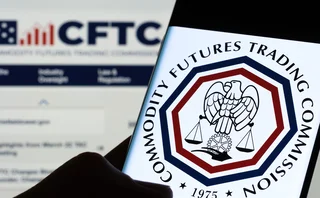
City insiders asked to help prevent fraud
UK SFO reaches out to City workers for help in catching fraudsters
The SFO has written to senior and managing partners of the leading accountancy and legal firms in London and is posting a special form on its website www.sfo.gov.uk/cases/cityfraud/ so that those employed in the City's financial services industry can blow the whistle on any bad practices. This online referral form targets individual workers, ex-employees, shareholders and anyone with information about suspected fraud. Information received will be treated in the strictest confidence.
In looking for fraud arising from the credit crunch, the SFO is working closely with colleagues in the law enforcement community both in the UK and abroad, and with governments and regulators.
The SFO website contains detailed information about the criteria under which the SFO can accept a case www.sfo.gov.uk/cases/cases.asp. But typically the SFO does not investigate or prosecute cases involving less than £1 million.
Those who wish to report a criminal offence of fraud that does not appear to meet the SFO's criteria should contact their local police or regional fraud squad. Information about the Metropolitan Police Fraud Squad can be obtained from www.met.police.uk/fraudalert/index.htm.
To hear the Director's views click on this link to the podcast.
Only users who have a paid subscription or are part of a corporate subscription are able to print or copy content.
To access these options, along with all other subscription benefits, please contact info@risk.net or view our subscription options here: http://subscriptions.risk.net/subscribe
You are currently unable to print this content. Please contact info@risk.net to find out more.
You are currently unable to copy this content. Please contact info@risk.net to find out more.
Copyright Infopro Digital Limited. All rights reserved.
As outlined in our terms and conditions, https://www.infopro-digital.com/terms-and-conditions/subscriptions/ (point 2.4), printing is limited to a single copy.
If you would like to purchase additional rights please email info@risk.net
Copyright Infopro Digital Limited. All rights reserved.
You may share this content using our article tools. As outlined in our terms and conditions, https://www.infopro-digital.com/terms-and-conditions/subscriptions/ (clause 2.4), an Authorised User may only make one copy of the materials for their own personal use. You must also comply with the restrictions in clause 2.5.
If you would like to purchase additional rights please email info@risk.net
More on Regulation
Barr defends easing of Basel III endgame proposal
Fed’s top regulator says he will stay and finish the package, is comfortable with capital impact
Bank of England to review UK clearing rules
Broader collateral set and greater margin transparency could be adopted from Emir 3.0, but not active accounts requirement
The wisdom of Oz? Why Australia is phasing out AT1s
Analysts think Australian banks will transition smoothly, but other countries unlikely to follow
EU trade repository matching disrupted by Emir overhaul
Some say problem affecting derivatives reporting has been resolved, but others find it persists
Barclays and HSBC opt for FRTB internal models
However, UK pair unlikely to chase approval in time for Basel III go-live in January 2026
Foreign banks want level playing field in US Basel III redraft
IHCs say capital charges for op risk and inter-affiliate trades out of line with US-based peers
CFTC’s Mersinger wants new rules for vertical silos
Republican commissioner shares Democrats’ concerns about combined FCMs and clearing houses
Adapting FRTB strategies across Apac markets
As Apac banks face FRTB deadlines, MSCI explores the insights from early adopters that can help them align with requirements







